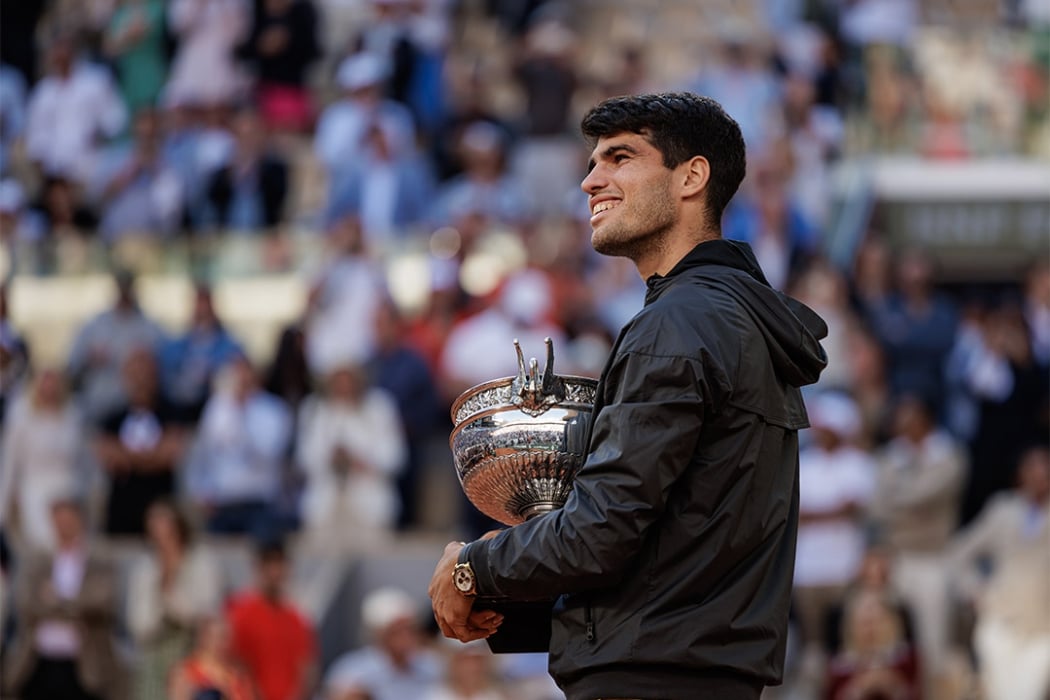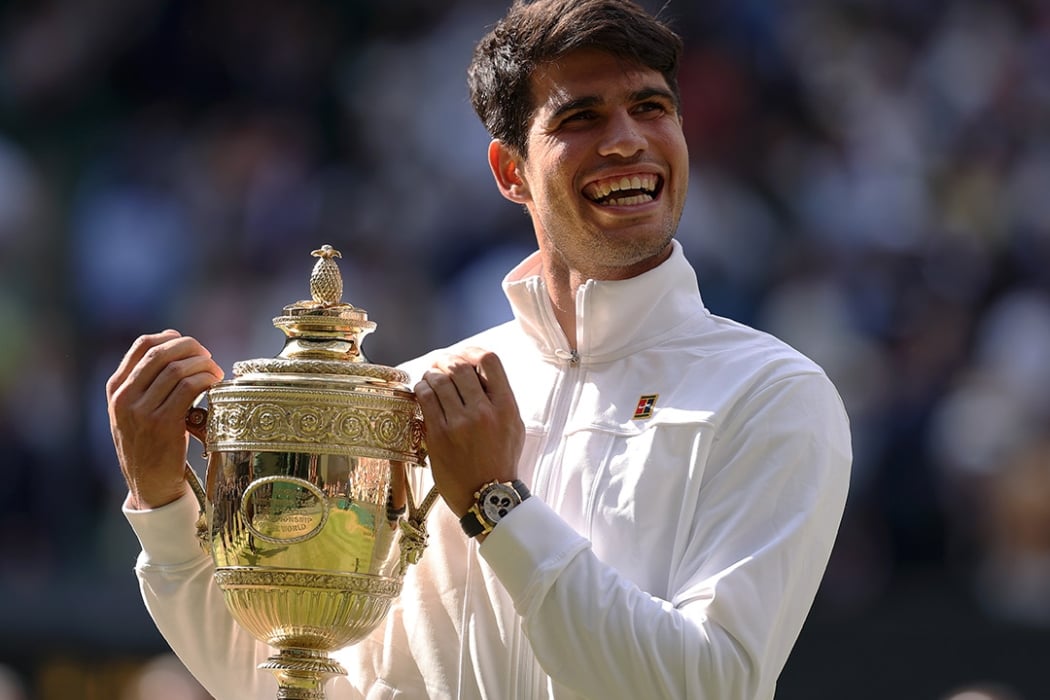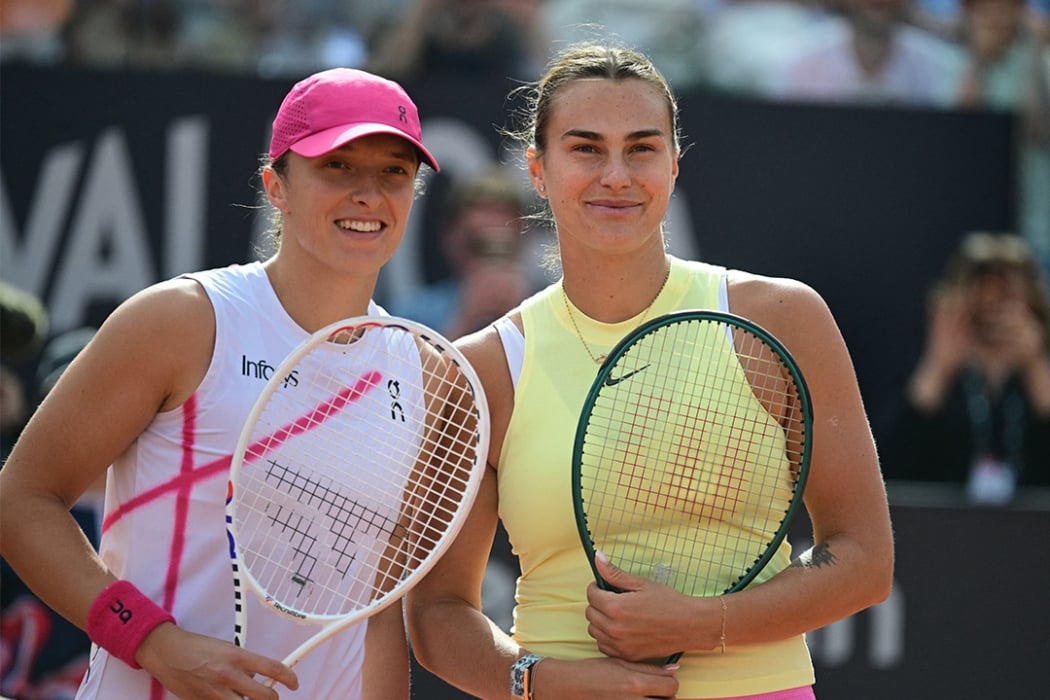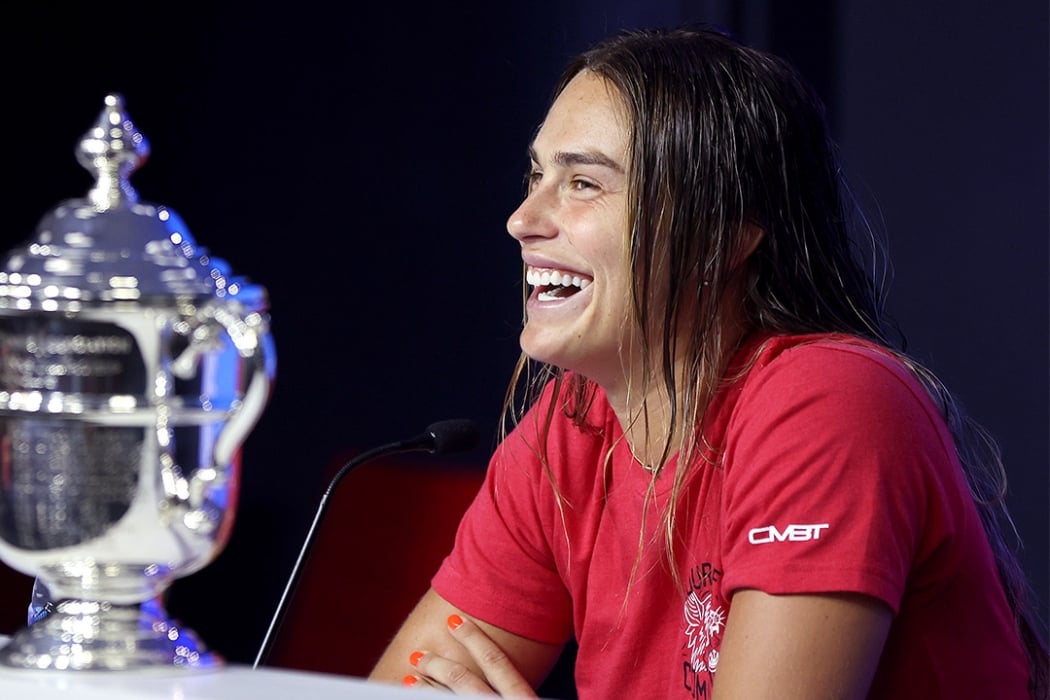After winning Roland Garros and Wimbledon back-to-back, Carlos Alcaraz's China Open victory might not initially seem that notable in the context of his overall season.
Of the four tournaments he has won in 2024, this 500-level title was the smallest.
However, by beating one of his biggest rivals in Jannik Sinner – the world No.1 and reigning Australian and US Open champion – in a pulsating final, Alcaraz ended a swoon that had persisted since his loss to Novak Djokovic in the Paris 2024 Olympic singles final.
CHANG ON DJOKOVIC: “What he has done is mind-boggling”
RELATED: Sinner, Alcaraz among best players at the Slams in 2024
The emotions that flowed in the aftermath of his Beijing triumph pointed to a victory of great significance, and caught the eye of Australian Billie Jean King Cup team coach Nicole Pratt.
Pratt, a former world No.35, said on this week’s episode of The AO Show podcast that Alcaraz’s obvious joy, and the tears shed by coach Juan Carlos Ferrero, spoke to an incredibly meaningful victory.
Despite admitting he did not actually see Ferrero crying, Alcaraz confirmed as much when asked about this moment in his press conference.
“I guess he got emotional at the end because we all know what we went through the last month or the last two months. It was a really difficult moment on the court, off the court,” Alcaraz admitted after overcoming Sinner 6-7(6) 6-4 7-6(3) in three hours and 21 minutes.
“Thanks to [my team] I started to get the joy back playing the matches, practising, I got motivated again. I really wanted to travel, to play tournaments again.
“Probably after the American swing, I was a little bit down, that I didn't want to touch a racquet for a while. I didn't want to travel, let's say.
“After that we talk a lot during those days, knowing that I have to be back practising, be stronger physically, be stronger mentally just to overcome on those problems, let's say. The last month we've been working really, really hard on the court, off the court, just to be able to feel this moment again.
“For me, it was special. For the people that are around me, it's a special moment.”
The emotional let-down that followed Alcaraz’s extraordinary European summer was understandable.
The prodigious Spaniard triumphed at Roland Garros, meaning he had already won Grand Slam trophies on all three surfaces just one month after turning 21. Next he beat Djokovic for the second straight year in the Wimbledon final, defending his title and earning a fourth major trophy – a victory making him the youngest player in the Open era to complete the rare “Channel Slam”.
He then came close to winning Olympic gold for Spain, only for Djokovic to prevail in their compelling gold medal match in Paris.
Alcaraz was distraught after that loss, admitting he felt like he’d let his country down. And his performance suffered throughout the North American hard-court swing that followed.
MORE: Djokovic’s career CV complete with Olympic gold
He fell in his opening match in Cincinnati to Gael Monfils – in the process smashing his racquet in an uncharacteristic burst of anger – before a shock second-round loss to Botic Van De Zandschulp at the US Open.
Pratt said she imagined that result prompted a tough conversation within Team Alcaraz.
“His performance at the US Open – for the calibre of player he is, it was not good, the way that he played there,” Pratt said of the straight-sets loss to 74th-ranked Van De Zandschulp, one of the biggest Grand Slam upsets in recent years.
"I feel what potentially happened … was a confronting moment that probably Ferrero delivered to Alcaraz and said: ‘You know what? That type of level [and] behaviour out on court, not showing the quality of who you are, you made a choice out there to go in a direction that is not [the] Alcaraz that we've seen'.
“I would suggest the team have had a really hard sit-down with him and said: 'OK, what do you want to do? Do you need a break, do you need a time-out, do we just call it quits this year? Because you can't continue to go out and play like that, that's for sure'.
"Knowing how Ferrero and the Spanish work, you need to put the work in on the practice court, to then be able to go play. If you're not prepared to put the work out on the practice court and show us that you really are committed to this, [then] don't go.
"So I really feel, based on that [Alcaraz quote], and like I said, I'm only reading between the lines here... That's why it was so meaningful [to win Beijing]. Tough moments, and then let's go. They put the work in, and to get that reward, it speaks volumes to that.”
Pratt, who has worked with top Australian women including Daria Saville, Alicia Molik and Casey Dellacqua, said such a conversation could only happen if there was a high degree of trust between player and coach.
She believed Alcaraz and Ferrero had built up an incredible level of trust over their many years of working together.
“As the coach, you still have to be able to have those tough conversations, and give a dose of 'this is reality',” she explained.
"The beauty of this relationship … is [Ferrero] doesn't need to be out working with Alcaraz. He's out there because he loves what he does and he believes Alcaraz still has so much to learn and achieve.
“A coach like that can have that conversation and then it's in the player's hands, what they want to do with it. Or really in their actions, what they decide to do.”
In Alcaraz’s case, it seems he listened intently during those conversations, and bought into the message.
His reward was a return to the winner’s circle.



